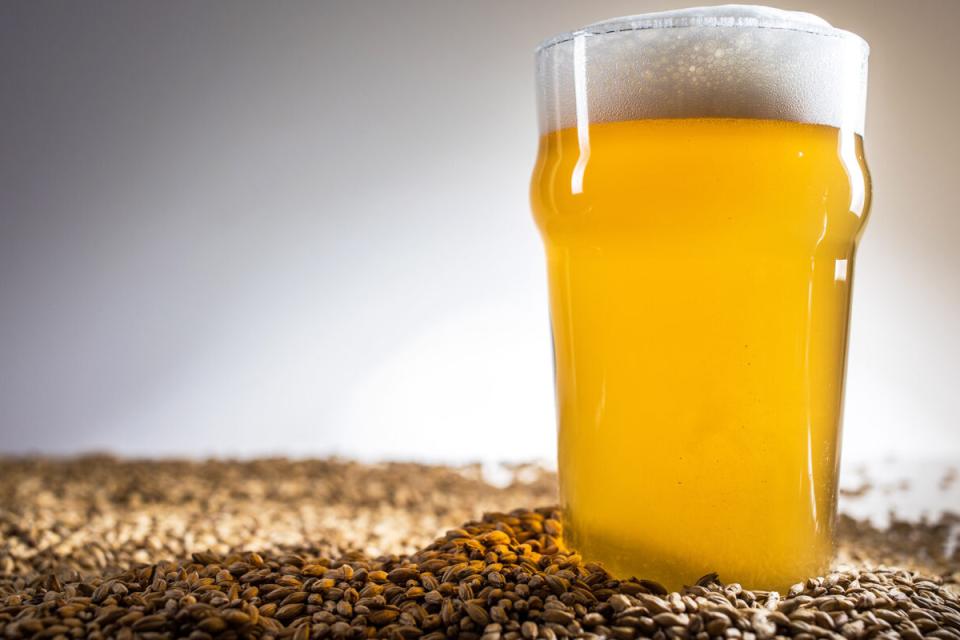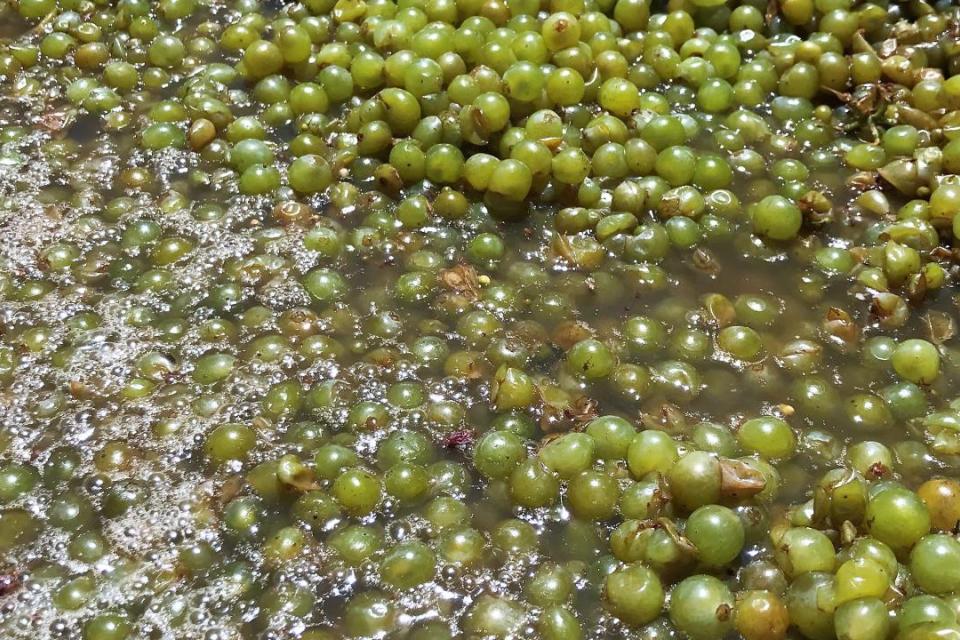Brewing a More Sustainable and Nutritious Future
Upcycling spent beer grains can pack foods and beverages with sustainable nutrition

Benjamin Franklin is often misquoted as saying, “Beer is proof of God’s existence.”
Franklin was referring to rainfall, viticulture and winemaking, though the analogy to barley, brewing science, and beermaking is apt. UC Davis Professor Emeritus Charles Bamforth thought it was so apt he authored a wonderfully entertaining and insightful book with a very similar title: “Beer Is Proof God Loves Us: Reaching for the Soul of Beer and Brewing.”
In addition to the role beer plays in human culture, the grains from which beer's unique sensory properties are derived are converted into a nutrient-dense product known as brewers’ spent grains, or BSG, during the brewing process. While the nutrient density of BSG has long been recognized, only recently have investments been made to commercialize this value in the form of products that appeal to a wide range of consumers.
After 30 years in the global food industry, I recognize exciting innovation when I see it. Environmentally sustainable, scalable, affordable ingredients enabling companies to produce more nutritious, better tasting food and beverage products certainly qualifies as an exciting innovation!
The fact these ingredients are dependent on the world’s beer brewing industry adds an interesting twist to this innovation journey.
Even more so given the malting and brewing sciences history of UC Davis alongside its world-class expertise in multiple areas of research, education, and extension across campus.
Brewing Better Food
I recently co-authored a paper titled “Brewers’ Spent Grain: An Unprecedented Opportunity to Develop Sustainable Plant-Based Nutrition Ingredients Addressing Global Malnutrition Challenges” published in the Journal of Agricultural and Food Chemistry.
The title of the study is filled with ambition because we want to emphasize the rare and exciting opportunity innovation with BSG has in making a positive difference in the lives of people around the world. This impact can be game changing for health and sustainability in low- and middle-income countries as well as higher-income countries. Even more exciting is the speed with which this positive difference can happen.
Beer is made from grains, and insoluble barley material comprises approximately 85% of the remaining waste after the soluble components are extracted from the malted barley for the brewing process.
Due to the popularity of beer with consumers around the world, 36.4 million metric tons of brewers’ spent grains (BSG) are produced every year.
Amazingly, 30% of this is protein and 40% dietary fiber, which represents a huge amount of nutrition potential for a world of people seeking better health!
Barley lends itself to more sustainable agriculture given the inputs it requires, including water, as well as its ability to thrive in lower-quality soils. This sustainability potential of BSG as a source of high-value ingredients is greatly amplified given it is a waste product that can be directly upcycled. This means a huge amount of nutritious plant-based protein and dietary fiber is constantly being produced to exacting safety and quality standards around the world every day!
However, until now, this potential has been largely untapped (pun intended).
Industrial Scale Science, Technology and Innovation
Bamforth was the first endowed Professor of Malting and Brewing Sciences in the UC Davis Food Science and Technology Department. Following Bamforth’s retirement, Glen Fox was appointed to this position.
The world’s leading beer brewer, AB InBev, provided the endowment for this professorship as well as the beautiful pilot facilities in the Robert Mondavi Institute that are used by students as well as companies large and small for research and education purposes. Some of these research efforts include advancing our knowledge of BSG and how it can be upcycled.
AB InBev recognized the dormant value of BSG in terms of sustainable nutrition and decided to do something about it. They created a company called EverGrain and have made unprecedented commitments during the past several years to develop and commercialize new ingredients derived from upcycling BSG, including construction of the world’s first factory focused on producing these ingredients.
In addition, EverGrain has created a science advisory board to guide their research in this area at universities around the world, including projects at UC Davis. Not to mention that EverGrain's CEO recently visited the Graduate School of Management to talk to MBA students.
This investment in research and innovation has led to the development of a new class of plant-based protein ingredients enabling food and beverage products to deliver more nutrition density while not sacrificing taste and consumer delight.
A New and Better Model for Food Ingredients
This innovation with BSG parallels that with Chardonnay marc, the nutrient-dense, flavor-enhancing remains after winemaking, previously discussed in my article about making chocolate taste better.
Both BSG and Chardonnay marc represent a new model for developing foods and beverages that are better tasting, more nutritious, and more environmentally sustainable.
For upcycling to positively impact our food system, it is not enough to create ingredients improving environmental sustainability metrics alone. Real impact will happen only if taste and/or health benefits associated with these ingredients is better than less sustainable options.
Our paper on BSG represents a collaboration with the Graduate School of Management (GSM); the Genome Center at UC Davis; co-author Professor Justin Siegal, the faculty director of the UC Davis Innovation Institute for Food and Health and the Arthur and Carlyse Ciocca Visiting Professor in Innovation and Entrepreneurship at the GSM; along with colleagues from the food and nutritional sciences group at University College Cork in Ireland.
We believe this type of multi-disciplinary, multi-institutional collaboration resonates with the unique UC Davis excellence represented by the faculty comprising the Robert Mondavi Institute for Wine and Food Science and the newly formed Lynda and Stewart Resnick Center for Agricultural Innovation who are seeking to create a better food system in a way that improves our economy, our health, and our environment.
(Editor’s note: Harold Schmitz is the former chief science officer at Mars, Incorporated. He is a Senior Scholar at the Graduate School of Management and a former Arthur and Carlyse Ciocca Visiting Professor in Innovation and Entrepreneurship. He is co-founder of The March Group, focused on bringing exponential technologies to food, health and sustainability. He is also an advisor with Barnstorm Foundry, a Davis-based venture foundry helping to develop new food and beverage businesses delivering first-in-class health benefits, which has a partnership with UC Davis and the Graduate School of Management. His diversity and depth of experiences enable visibility to, and network support for, world-class inventors, innovators, and companies defining the role of food in the new economy of health.)


